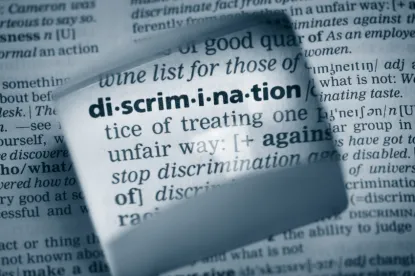You believe your employer did not promote you because of your gender, race, national origin, religion, or other protected characteristic, and you tried unsuccessfully to informally resolve the issue. Now what?
The next step, assuming you filed a timely EEOC discrimination charge, is to consider whether to file a complaint in court. If you opt to do so, you may be wondering how you will be able to prove that the company illegally discriminated against you. The company will likely point to what it claims are the legitimate reasons why it did not promote you (for example, the superior qualifications of the other candidate or some aspect of your work history that they now claim gave them second thoughts about your promotion).
If you file a promotion discrimination claim in federal court, the basic framework set forth below will likely govern your claims under Title VII of the 1964 Civil Rights Act (other state and federal laws may apply as well).
Note: this framework applies to an individual (versus a class action) case claiming the employer intentionally discriminated against you, and where you will rely on circumstantial rather than direct (“I did not promote you because you are a woman”) evidence.
Initial showing to prove a promotion discrimination claim (aka the prima facie case)
The first step to proving your glass ceiling discrimination case is to show that:
- You are a member of a protected class (for example, a woman, African-American, Hispanic)
- You applied for and were qualified for the promotion; and
- After you were rejected, the position remained open or was filled by a person with similar qualifications.
Your employer must then say why it did not promote you
If you make the initial showing described above, then your employer is required to give a reason why it did not select you for the promotion. Importantly, at this stage, your employer can simply offer a reason, they do not have to actually prove that this reason was what actually motivated their decision.
So, for example, your company could claim that it did not promote you because they expected higher earnings from the unit you supervised; you did not yet possess enough experience for the position; you lacked sufficient leadership skills, etc.
Can you show that the employer’s stated reason is a pretext for promotion discrimination?
If your employer proffers a legitimate, non-discriminatory reason for why they did not promote you—and they almost always do—you must then show that its reason was not the true basis for the decision. That is, you must prove that its claimed reason was a pretext for discrimination. Not all federal courts apply the same analysis regarding pretext, but generally pretext can be shown by:
- Evidence that you were substantially better qualified than the person selected;
- Similarly situated employees of a different gender, race, national origin, etc. were treated better;
- Shifting and inconsistent reasons offered by the employer;
- Exposing other flaws in the employer’s stated reason (for example, significant deviations from normal procedures in the promotion process);
- However, it is not enough to simply nitpick about relatively minor flaws in the selection process.
The ultimate question—which you must prove by a preponderance of the evidence—is whether, based on all the evidence presented, a jury could reasonably infer that your employer discriminated against you by not selecting you for the promotion.
What remedies are available if I prove glass ceiling/promotion discrimination?
A variety of potential remedies will be available if you win your glass ceiling discrimination case. The precise type of remedies, however, will depend on the type of lawsuit you file.
Assuming that your case is an individual, Title VII intentional discrimination case against a private company, then a court may award you any combination of the following remedies:
- Back pay;
- Compensatory damages, including emotional distress damages, as well as out of pocket expenses for job searches, medical expenses, etc.;
- Punitive damages;
- Make-whole relief (including being placed in the position you were denied); and/or
- Attorney’s fees, expert witness fees, and litigation costs
Other remedies may be available in class action cases; cases against the federal, state, or local government; unintentional discrimination (disparate impact) cases; and cases under different anti-discrimination laws.
What should I do if I believe my employer discriminatorily denied me a promotion?
Several different legal options exist, including:
- Filing an internal complaint with your company;
- Documenting evidence of discrimination;
- Exploring different anti-discrimination laws that may apply to your claim;
- Understanding the applicable deadlines, including EEOC discrimination charge filing deadlines, that may apply;
- Reaching out to your company prior to filing a formal charge of discrimination or lawsuit to discuss settlement; and/or
- Filing a complaint in court.


 />i
/>i

